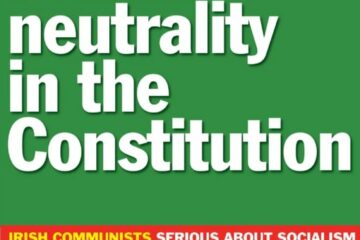8 September 2008
For decades our politicians and economic gurus of all shapes and sizes have been extolling the virtues of the “free market” and arguing that the state should stay out of the market. “There is no alternative” was the unchallengeable dogma of these forces.
Now we have those same individuals and institutions demanding that the state intervene in the financial and housing markets to save them from their own greed and reckless policies.
This clamour has resulted in the Bush government in Washington—one of the most rabid of all neo-liberalist governments—nationalising “Fannie Mae” and “Freddie Mac” in order to stave off a complete collapse of the North American financial sector with global consequences.
The policy of bailing out the bankers and financial speculators adopted on both sides of the Atlantic will only result in blowing up the bubble a bit more. Working people will pay the price: in job losses, cuts in services, and loss of pensions and, most probably, their homes.
Working people will be forced to pick up the price tag and bear the brunt of the oncoming and and most likely unstoppable economic crisis. Fundamental change is required, not more tinkering around with some cosmetic changes.
What the present crisis has exposed is the reality that state intervention in the economy is very much allowed when the banks are in trouble and need state welfare to bail them out. Millions of euros can be found for this purpose, yet no new money is to be found for developing the health and education services or to help those struggling to keep a roof over their heads.
No demands were made on these banks, nor were new regulations introduced to stop them carrying on the same reckless financial strategies that are central to the present crisis. This is corporate welfare on a vast scale.
The bringing forward of the budget by this lame-duck Irish government is yet another example of how working people are going to pay a heavy price for failed economic policies both at home and abroad.










